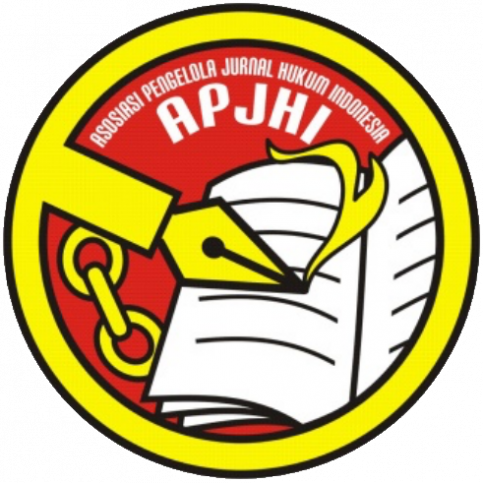PROHIBITED ACTIONS FOR BUSINESS ACTORS ON CARRY OUT BUSINESS ACTIVITIES (ANALYSIS OF DOG MEAT SALES AT REGIONAL COMPANY PASAR JAYA SENEN JAKARTA)
Abstract
The sale of dog meat at the Pasar Jaya Regional Company, Senen Block III, began with news circulating on social media which was revealed by Animal Defenders Indonesia. The sale has been going on for more than 6 years and every day the trader sells 4 dog meat. The sale of dog meat at the Pasar Jaya Regional Company on Senen violates the regulations for selling at the Pasar Jaya Senen Regional Company, because dog meat is one of the products that cannot be traded. The sale of dog meat violates Law No. 18 of 2012 concerning Food, because dog meat is a type of commodity that cannot be traded. In Islamic law, dog meat is a forbidden food. Law Number 33 of 2014 concerning Halal Product Guarantees, business actors in selling non-halal products must include non-halal signs on their products, which can be in the form of writing or images stating that they are not halal. Traders also violate Law Number 8 of 1999 concerning Consumer Protection, because business actors in carrying out their business activities do not provide clear information to consumers about the products they sell and do not have good intentions. The problem is what are the forms of violation of Muslim consumer rights in the sale of dog meat and the form of sanctions given to business actors. The research method used is normative research using library data. The results of the study show that the sale of dog meat is a violation of the rights of Muslim consumers because traders do not provide information that the product they sell is dog meat. The sale is carried out close to halal products, this is a violation. The sanction given by the manager of the Pasar Jaya Regional Company on Senen to traders was a warning to business actors to close their stalls. The warning is heeded by business actors by closing their stalls.
Key words: Dog meat, Violation, Muslim Consumer Rights
Full Text:
PDFReferences
Adi, R. (2021). Metodologi penelitian sosial dan hukum. Yayasan Pustaka Obor Indonesia.
Gunawan, I. (2013). Metode penelitian kualitatif. Jakarta: Bumi Aksara, 143, 32–49.
Hamid, A. H. (2017). Hukum Perlindungan Konsumen Indonesia (Vol. 1). SAH MEDIA.
Imaniati, N. S. (2001). Perlindungan konsumen salah satu upaya penegakan etika bisnis pada masyarakat islam dalam era globalisasi. Mimbar: Jurnal Sosial dan Pembangunan, 17(4), 467–486.
Kristiyanti, C. T. S. (2022). Hukum perlindungan konsumen. Sinar Grafika.
Mariani, A. (2019). Tinjauan Perlindungan Konsumen dalam Perdagangan Makanan dan Minuman yang Mengandung Bahan Berbahaya Di Pasar Inpres Bangkinang [PhD Thesis]. Universitas Islam Riau.
Purba, B., Purba, D. S., Purba, P. B., Nainggolan, P., Susanti, E., Damanik, D., Parinduri, L., Lie, D., Fajrillah, F., & Rahman, A. (2021). Ekonomi Internasional. Yayasan Kita Menulis.
Syawali, H., & Imaniyatin, N. S. (2000). Hukum Perlindungan Konsumen, Mandar Maju. Bandung.
Usman, R. (2022). Hukum persaingan usaha di Indonesia. Sinar Grafika.
Warsono, S. P. M. (2017). Indonesia Dalam Menghadapi Masyarakat Ekonomi Asean (MEA). Jurnal STIE Ganesha (Manajemen dan Bisnis), 1(2), 114–133.
DOI: http://dx.doi.org/10.31000/jhr.v10i1.5651
Article Metrics
Abstract - 683 PDF - 681Refbacks
- There are currently no refbacks.

This work is licensed under a Creative Commons Attribution-ShareAlike 4.0 International License.

